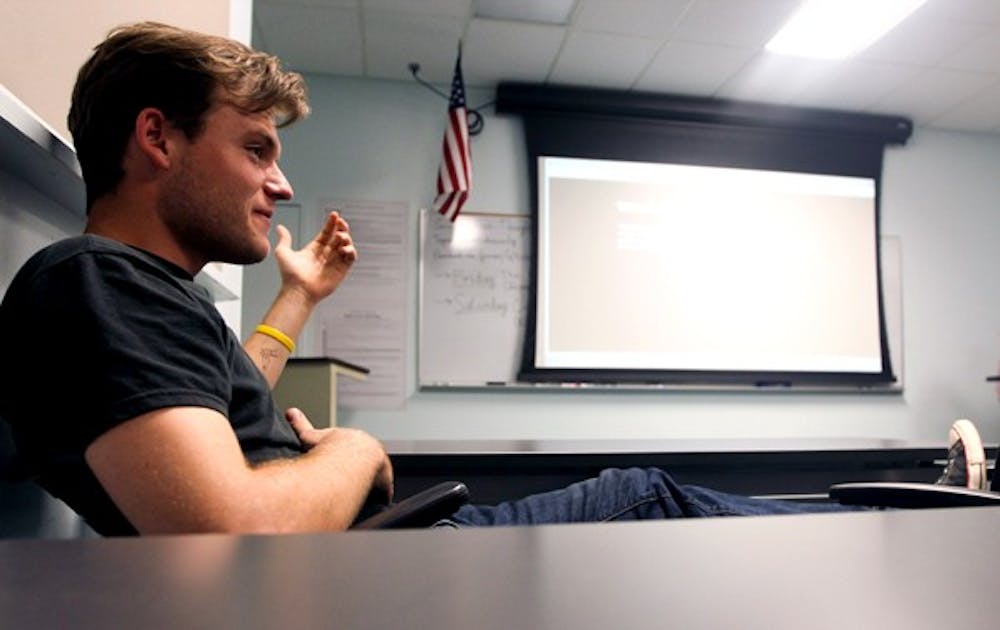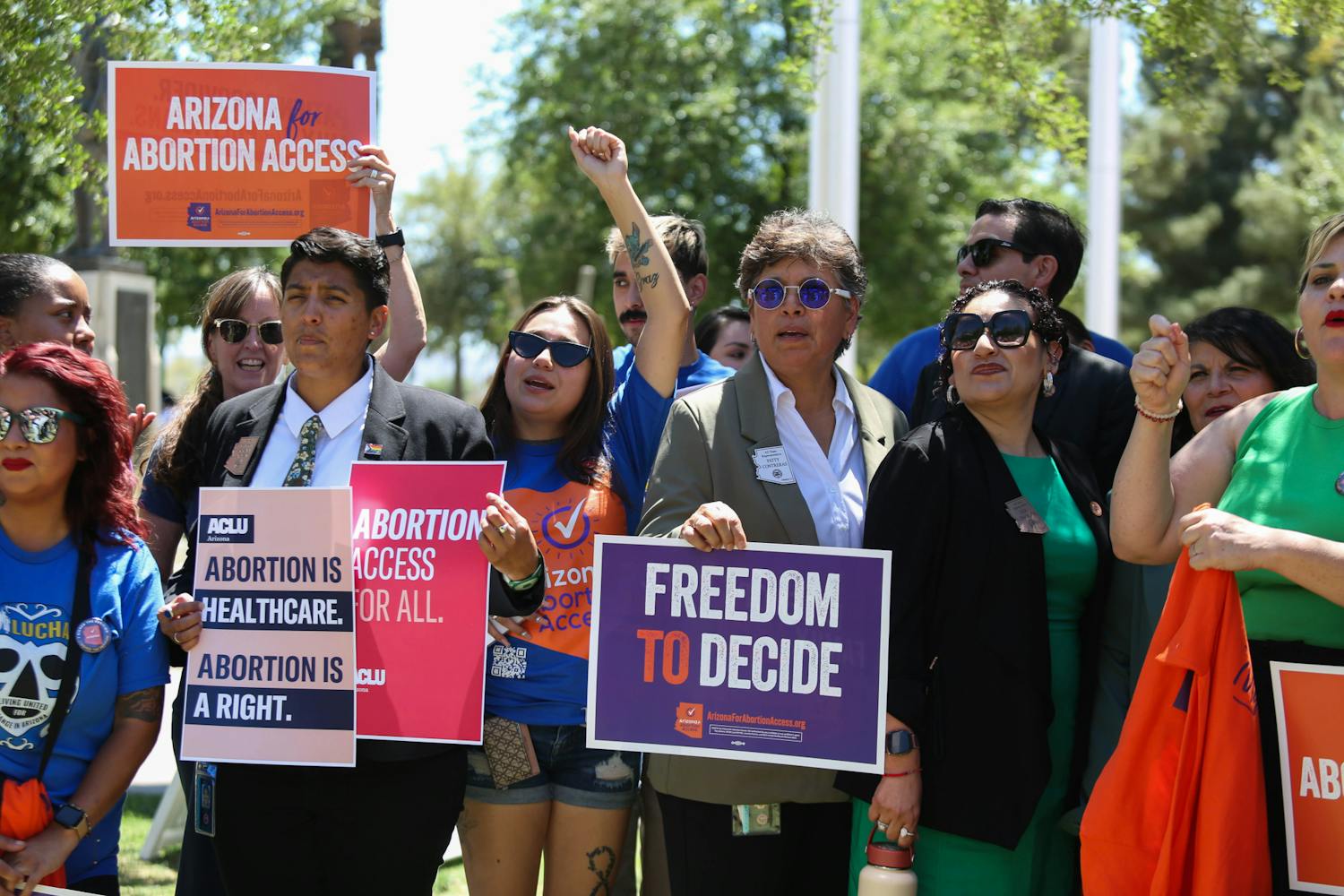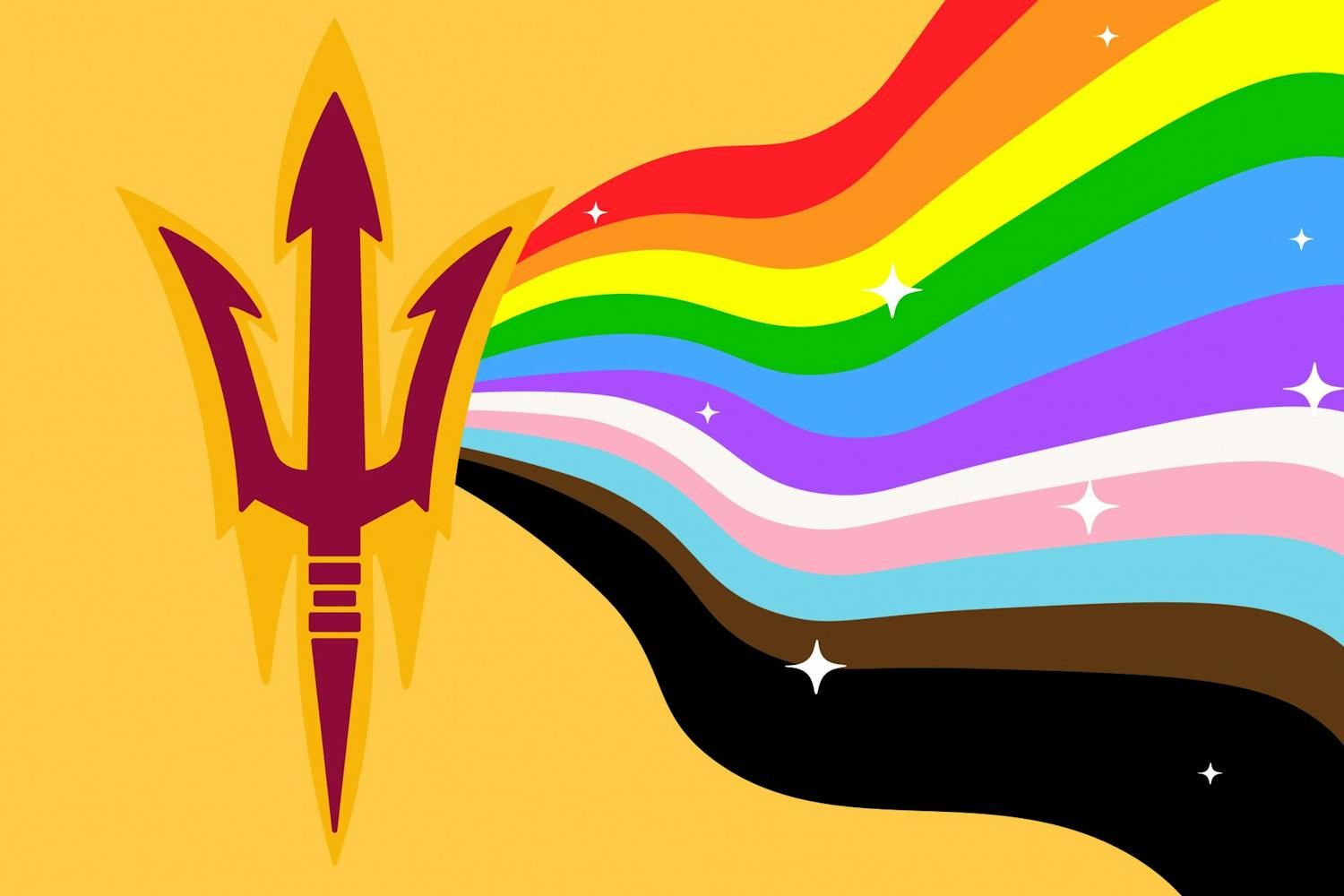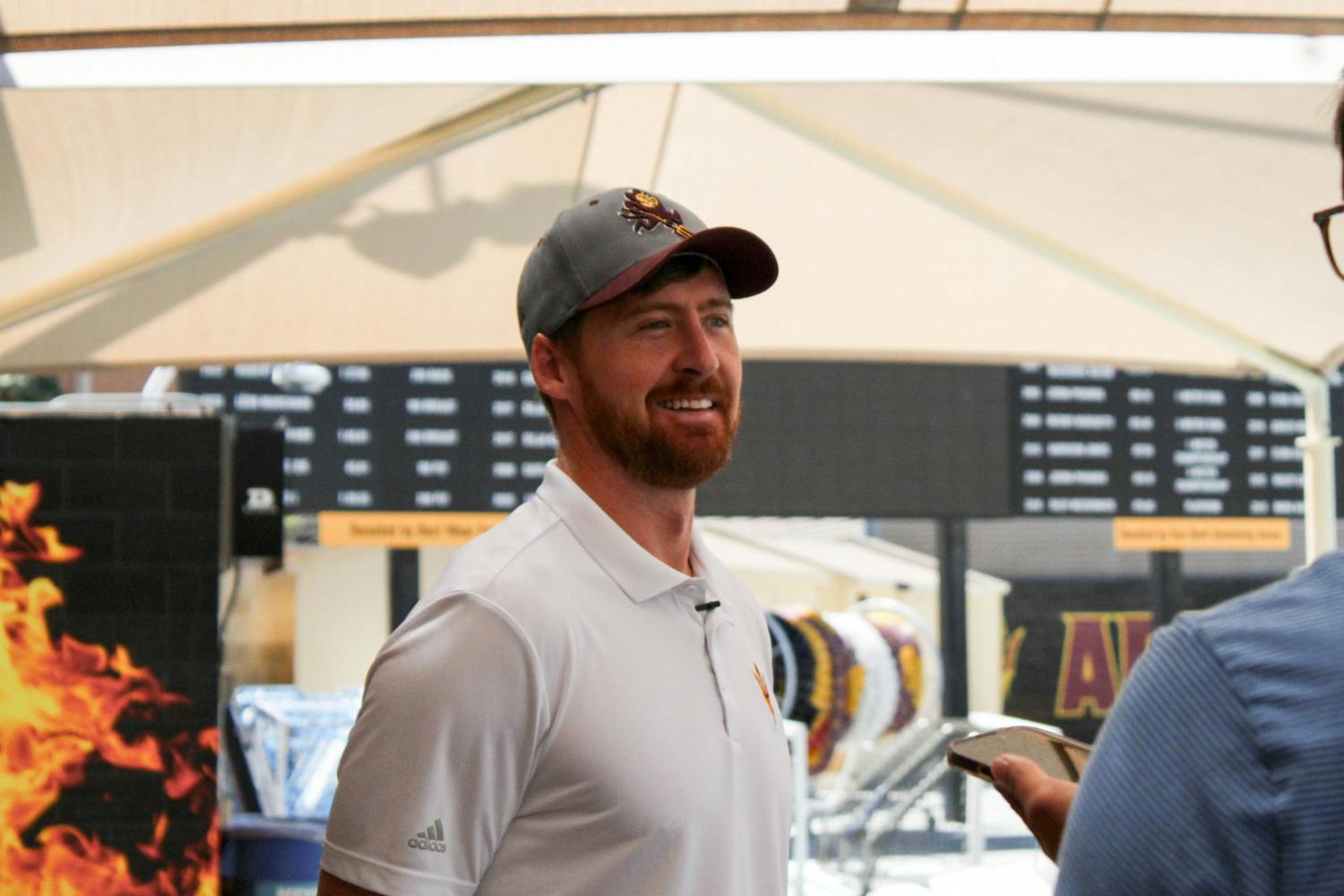 ASU senior Shane Garst speaks up at a Secular Free Thinker's Society meeting. Garst, who is majoring in German and Russian studies, is the leader of the club. (Photo by Dominic Valente)
ASU senior Shane Garst speaks up at a Secular Free Thinker's Society meeting. Garst, who is majoring in German and Russian studies, is the leader of the club. (Photo by Dominic Valente)It was a summer night following Shane Garst's freshman year at ASU that he stopped believing in a god.
Garst, a Russian and German senior, grew up as a Catholic but entered college only believing in God. In a split second that night, he put the pieces together in his mind and realized he was an atheist.
"All of a sudden, (the concepts of science, morality and evolution) came together, and it occurred to me that there was nothing in the history of the universe that demanded an existence of a god or a creator," Garst said. "It was suddenly that I linked them all together."
As a child, Garst grew up in a very devout Roman Catholic household. He and his family went to church every Sunday and attended catechism classes in the evenings. Garst said he believed what the church told him and followed along.
However, when he turned 16, Garst began to read the gospels on his own and questioned them.
He brought these questions to his catechism teachers, but they were unable to answer his questions to the extent he felt they deserved to be answered.
"I left the Christian religion after receiving a bit of ridicule for the questions from the teachers and the other students," Garst said. "I found that history doesn't really match up with religion, and religion doesn't really match up with my own views of what is moral and what is ethical."
Even though Garst had ceased to believe in Christianity by the time he entered college, he still believed in the existence of a god, he said. In fact, he believed so strongly in God that he would argue with others about God.
"I believed very strongly that there was a god," Garst said. "I would have arguments with people. I would try and convince them that there was a god and that my god was correct."
Even though Garst's beliefs have changed, he still retains the strength of conviction he had when he was a Christian and stands up for his beliefs. Garst, a self-proclaimed "vocal atheist," is often ridiculed and threatened for his atheism.
"I used to get a lot of hate mail," Garst said. "I have gotten a couple of death threats. None of them of course went through with it, or even close."
Garst said that his change from believing in a god to not believing in a god has allowed him to become more fully involved in supporting causes and helping people, instead of simply praying for change.
"Now that I don't think there's a god to help people, and I look forward to the ability to donate to worthwhile causes like stem cell research and UNICEF," Garst said. "Faith and prayer can't improve anything. People can.”
Reach the reporter at sgslade@asu.edu or follow her @shelbygslade




